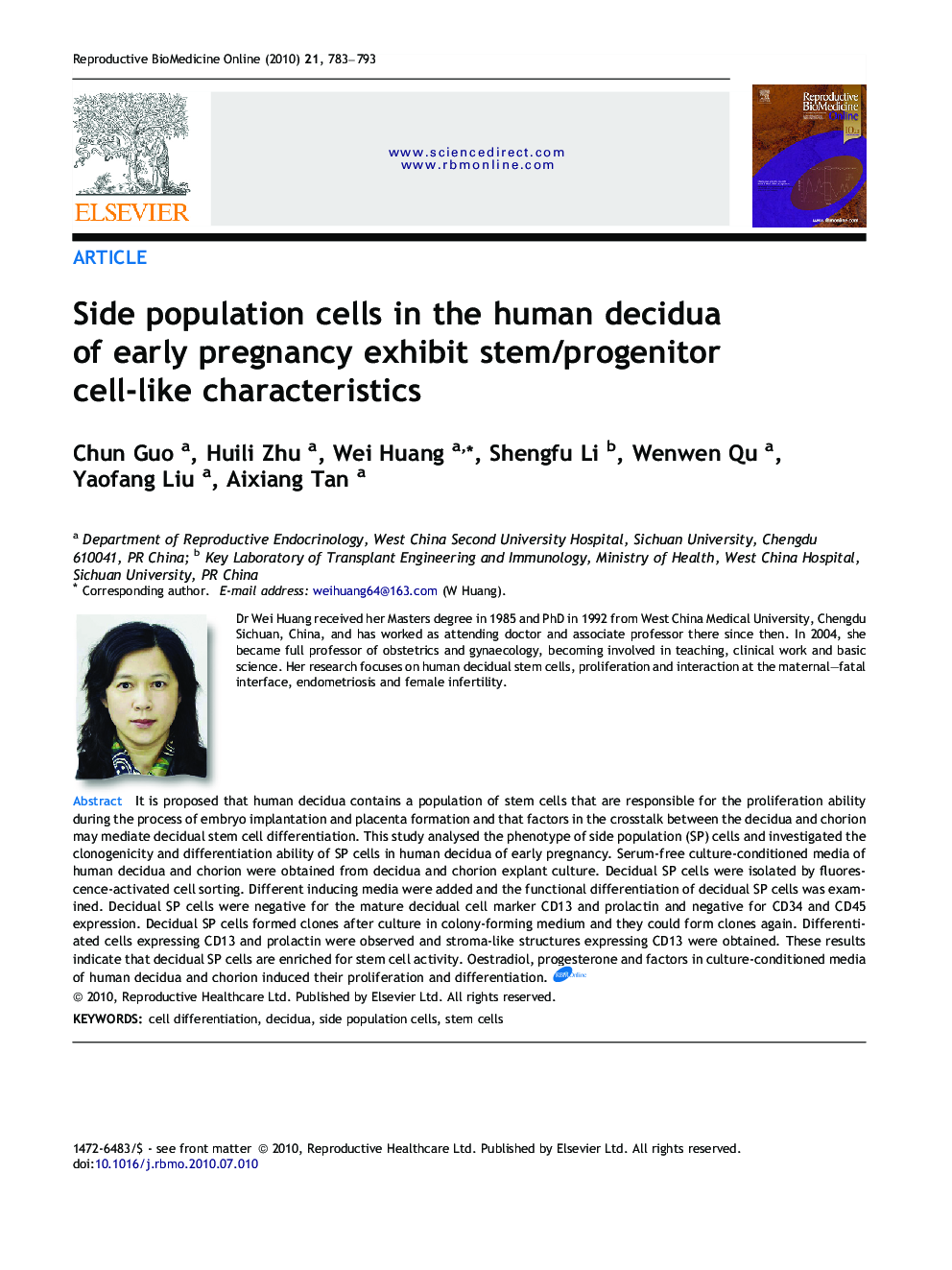| Article ID | Journal | Published Year | Pages | File Type |
|---|---|---|---|---|
| 3971212 | Reproductive BioMedicine Online | 2010 | 11 Pages |
It is proposed that human decidua contains a population of stem cells that are responsible for the proliferation ability during the process of embryo implantation and placenta formation and that factors in the crosstalk between the decidua and chorion may mediate decidual stem cell differentiation. This study analysed the phenotype of side population (SP) cells and investigated the clonogenicity and differentiation ability of SP cells in human decidua of early pregnancy. Serum-free culture-conditioned media of human decidua and chorion were obtained from decidua and chorion explant culture. Decidual SP cells were isolated by fluorescence-activated cell sorting. Different inducing media were added and the functional differentiation of decidual SP cells was examined. Decidual SP cells were negative for the mature decidual cell marker CD13 and prolactin and negative for CD34 and CD45 expression. Decidual SP cells formed clones after culture in colony-forming medium and they could form clones again. Differentiated cells expressing CD13 and prolactin were observed and stroma-like structures expressing CD13 were obtained. These results indicate that decidual SP cells are enriched for stem cell activity. Oestradiol, progesterone and factors in culture-conditioned media of human decidua and chorion induced their proliferation and differentiation.The key point for successful pregnancy is when the embryo been accepted by the uterus of the mother, for which decidua formation and embryo development are involved. The decidua is the uterine lining (endometrium) during a pregnancy and the chorion is one of the membranes that exists between the developing fetus and mother. Poor development of the decidua can cause disease such as infertility. Stem cells are characterized by the ability to self-renew and the ability of daughter cells to differentiate into more specialist mature cells. An adult stem cell subpopulation (side population cells, SP cells) has been identified. It has been confirmed that the human endometrium contains stem cells that are responsible for its remarkable regeneration ability. Our previous study has already demonstrated that SP cells are present in decidua. The decidua and the chorion secrete factors important for maintenance of pregnancy. However, whether these factors can induce the differentiation of decidual SP cells remains unknown. In this study, we isolated and analysed the cell markers of SP cells in the human decidua of early pregnancy. To imitate the environment in vivo, we collected media after culture of the decidua or the chorion. After treatment with the media, decidual SP cells were studied for cell differentiation. Functional differentiation of decidual SP cells was observed and stroma-like structures were obtained. These results indicate that decidual SP cells are enriched for stem cell activity. Factors in culture-conditioned media from human decidua and chorion can induce SP cell proliferation and differentiation.
